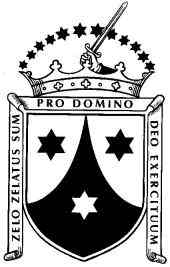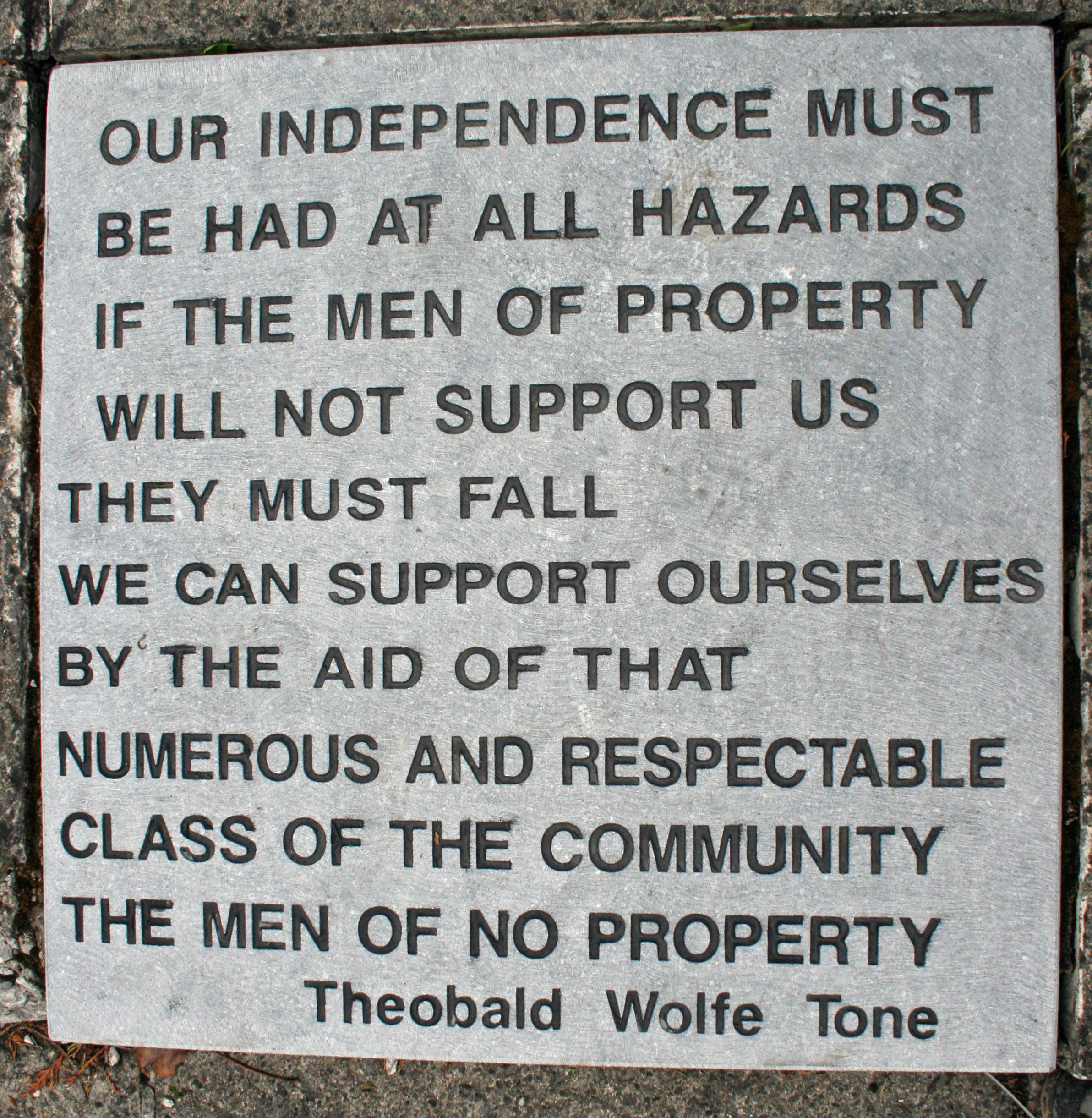|
The Carmelite
''The Carmelite'' is a tragic play by the British writer Richard Cumberland. It was first staged at the Drury Lane Theatre on 2 December 1784. The play's hero Saint-Valori disguises himself as a Carmelite. The play enjoyed some success, and was later staged a theatre in Belfast where Wolfe Tone Theobald Wolfe Tone, posthumously known as Wolfe Tone ( ga, Bhulbh Teón; 20 June 176319 November 1798), was a leading Irish revolutionary figure and one of the founding members in Belfast and Dublin of the United Irishmen, a republican socie ... saw it in 1791.Moody p.138 References Bibliography * Moody, TW (ed.). ''The writings of Theobald Wolfe Tone: 1763 - 98. Volume I, Tone's career in Ireland to June 1795''. Oxford University Press, 1998. * Nicoll, Allardyce. ''A History of English Drama 1660-1900. Volume III: Late Eighteenth Century Drama''. Cambridge University Press, 1952. * Watson, George. ''The New Cambridge Bibliography of English Literature: Volume 2, 1660–1800. Cambr ... [...More Info...] [...Related Items...] OR: [Wikipedia] [Google] [Baidu] |
Tragedy
Tragedy (from the grc-gre, τραγῳδία, ''tragōidia'', ''tragōidia'') is a genre of drama based on human suffering and, mainly, the terrible or sorrowful events that befall a main character. Traditionally, the intention of tragedy is to invoke an accompanying catharsis, or a "pain hatawakens pleasure", for the audience. While many cultures have developed forms that provoke this paradoxical response, the term ''tragedy'' often refers to a specific tradition of drama that has played a unique and important role historically in the self-definition of Western civilization. That tradition has been multiple and discontinuous, yet the term has often been used to invoke a powerful effect of cultural identity and historical continuity—"the Greeks and the Elizabethans, in one cultural form; Hellenes and Christians, in a common activity," as Raymond Williams puts it. From its origins in the theatre of ancient Greece 2500 years ago, from which there survives only a fra ... [...More Info...] [...Related Items...] OR: [Wikipedia] [Google] [Baidu] |
Richard Cumberland (dramatist)
Richard Cumberland (19 February 1731/2 – 7 May 1811) was an English dramatist and civil servant. In 1771 his hit play '' The West Indian'' was first staged. During the American War of Independence he acted as a secret negotiator with Spain in an effort to secure a peace agreement between the two nations. He also edited a short-lived critical journal called ''The London Review'' (1809). His plays are often remembered for their sympathetic depiction of characters generally considered to be on the margins of society. Early life and education Richard Cumberland was born in the master's lodge of Trinity College, Cambridge on 19 February 1731/2. His father was a clergyman, Doctor Denison Cumberland, who became successively Bishop of Clonfert and Bishop of Kilmore, and through him his great-grandfather was Richard Cumberland, the philosopher and bishop of Peterborough. His mother was Johanna Bentley, youngest daughter of Joanna Bernard and the classical scholar Richard Bentley, l ... [...More Info...] [...Related Items...] OR: [Wikipedia] [Google] [Baidu] |
Theatre Royal, Drury Lane
The Theatre Royal, Drury Lane, commonly known as Drury Lane, is a West End theatre and Grade I listed building in Covent Garden, London, England. The building faces Catherine Street (earlier named Bridges or Brydges Street) and backs onto Drury Lane. The building is the most recent in a line of four theatres which were built at the same location, the earliest of which dated back to 1663, making it the oldest theatre site in London still in use. According to the author Peter Thomson, for its first two centuries, Drury Lane could "reasonably have claimed to be London's leading theatre". For most of that time, it was one of a handful of patent theatres, granted monopoly rights to the production of "legitimate" drama in London (meaning spoken plays, rather than opera, dance, concerts, or plays with music). The first theatre on the site was built at the behest of Thomas Killigrew in the early 1660s, when theatres were allowed to reopen during the English Restoration. Initially ... [...More Info...] [...Related Items...] OR: [Wikipedia] [Google] [Baidu] |
Carmelite
, image = , caption = Coat of arms of the Carmelites , abbreviation = OCarm , formation = Late 12th century , founder = Early hermits of Mount Carmel , founding_location = Mount Carmel , type = Mendicant order of pontifical right , status = Institute of Consecrated Life , membership = 1,979 (1,294 priests) as of 2017 , leader_title = Motto , leader_name = la, Zelo zelatus sum pro Domino Deo exercituumEnglish: ''With zeal have I been zealous for the Lord God of hosts'' , leader_title2 = General Headquarters , leader_name2 = Curia Generalizia dei CarmelitaniVia Giovanni Lanza, 138, 00184 Roma, Italia , leader_title3 = Prior General , leader_name3 = Mícéal O'Neill, OCarm , leader_title4 = Patron saints , leader_name4 = Our Lady of Mt. Carmel, Elijah , parent_organization = Catholic Church , website = ... [...More Info...] [...Related Items...] OR: [Wikipedia] [Google] [Baidu] |
Belfast
Belfast ( , ; from ga, Béal Feirste , meaning 'mouth of the sand-bank ford') is the capital and largest city of Northern Ireland, standing on the banks of the River Lagan on the east coast. It is the 12th-largest city in the United Kingdom and the second-largest in Ireland. It had a population of 345,418 . By the early 19th century, Belfast was a major port. It played an important role in the Industrial Revolution in Ireland, briefly becoming the biggest linen-producer in the world, earning it the nickname "Linenopolis". By the time it was granted city status in 1888, it was a major centre of Irish linen production, tobacco-processing and rope-making. Shipbuilding was also a key industry; the Harland and Wolff shipyard, which built the , was the world's largest shipyard. Industrialisation, and the resulting inward migration, made Belfast one of Ireland's biggest cities. Following the partition of Ireland in 1921, Belfast became the seat of government for Northern Ireland ... [...More Info...] [...Related Items...] OR: [Wikipedia] [Google] [Baidu] |
Wolfe Tone
Theobald Wolfe Tone, posthumously known as Wolfe Tone ( ga, Bhulbh Teón; 20 June 176319 November 1798), was a leading Irish revolutionary figure and one of the founding members in Belfast and Dublin of the United Irishmen, a republican society determined to end British rule, and achieve accountable government, in Ireland. Throughout his political career, Tone was involved in a number of military engagements against the British navy. He was active in drawing Irish Catholics and Protestants together in the United cause, and in soliciting French assistance for a general insurrection. In November 1798, on his second attempt to land in Ireland with French troops and supplies, he was captured by British naval forces. The United Irish risings of the summer had already been crushed. Tone died in advance of his scheduled execution, probably, as modern scholars generally believe, by his own hand. Later generations were to regard Tone as the father of Irish Republicanism. His grave in ... [...More Info...] [...Related Items...] OR: [Wikipedia] [Google] [Baidu] |
Plays By Richard Cumberland
Play most commonly refers to: * Play (activity), an activity done for enjoyment * Play (theatre), a work of drama Play may refer also to: Computers and technology * Google Play, a digital content service * Play Framework, a Java framework * Play Mobile, a Polish internet provider * Xperia Play, an Android phone * Rakuten.co.uk (formerly Play.com), an online retailer * Backlash (engineering), or ''play'', non-reversible part of movement * Petroleum play, oil fields with same geological circumstances * Play symbol, in media control devices Film * ''Play'' (2005 film), Chilean film directed by Alicia Scherson * ''Play'', a 2009 short film directed by David Kaplan * ''Play'' (2011 film), a Swedish film directed by Ruben Östlund * ''Rush'' (2012 film), an Indian film earlier titled ''Play'' and also known as ''Raftaar 24 x 7'' * ''The Play'' (film), a 2013 Bengali film Literature and publications * ''Play'' (play), written by Samuel Beckett * ''Play'' (''The New York Times'' ... [...More Info...] [...Related Items...] OR: [Wikipedia] [Google] [Baidu] |




.png)
